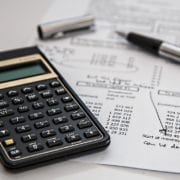Depreciation and Your Investment Property
When a person buys an investment property, the intention is to generate an additional revenue stream from the rentals. But the process of looking for a good tenant and setting them up is not that easy. Then there is the issue of regular or ad hoc maintenance expenses, which eat away at the rental income. On top of that, there is the matter of paying taxes on the property and its income.
The Australian tax rules have made it possible for homeowners to get some relief from the taxes they need to pay for their property and its income. The rules regarding depreciation residential rental property provide for a reduction on tax on account of the depreciation of the value of the property.
There are two ways in which the deduction can be calculated. It could be either on the capital works or on plant and equipment. It is required that a complete tax depreciation schedule for rental property is created by the owner. This is a specialized job for which experts need to be brought in.
There are several companies which offer this kind of service. They employ qualified quantity surveyors who are trained to create this kind of report. It requires detailed measurements and counting of each and every small and big element on the property. Based on those data points, the complete rental property depreciation report is prepared. This is then used in and submitted along with the tax returns of the property owner.
There are some things to be kept in mind when claiming tax depreciation on investment properties. Here are some of them:
- There are cutoff dates for properties laid down. For commercial properties, the commencement date is 20th of July, 1982. For residential properties, the date is 15th of September 1987.
- For plant and equipment assets, the effective lives of each element would be taken into consideration. ATO has laid down a detailed list for this, and the tax returns would be filed accordingly.
- The individual effective life would also depend on the type of property where the plant and equipment asset has been used.
- House owners need to keep in mind that the depreciation rules would only apply if the property is not being occupied by the owners. Therefore, it has to be a rental or investment property for the depreciation rules to be allowable.
- The above rule can be relaxed if the property is purchased and owned by a trust or a company instead of an individual. In such cases, the owner (individual) can move in as a tenant of the trust and claim depreciation.
There are several good companies who can help you create the depreciation report for your property in line with the current regulations. They have teams of qualified technical specialists who would help prepare the depreciation reports and file the tax returns accurately.












